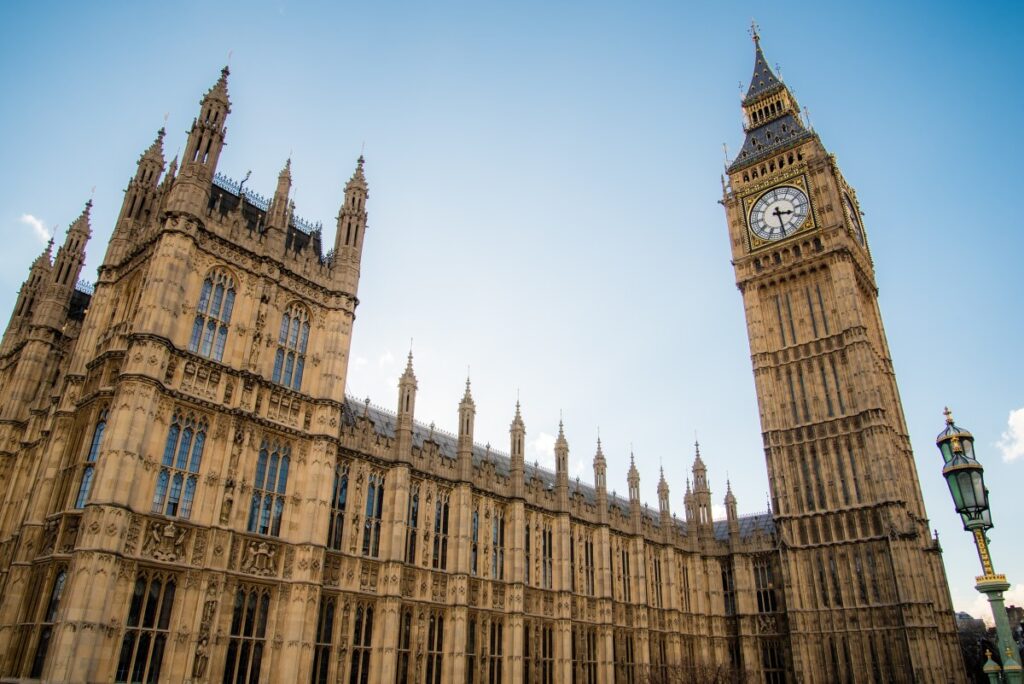Voters support climate action, but will our political leaders take it in 2024? – Inside track
6 min read
One of Green Alliance’s values is optimism. I shall reach deep into my reserves of optimism in this blog on 2023 and what we can hope for in the coming year.
In the middle of last year the prime minister turned against green policies, but the public did not turn with him and the government is once again trying to move the environmental agenda forward. The new environment secretary, Steve Barclay, is keen to get things done and there continues to be progress on climate policy. The zero emissions vehicle mandate was 2023’s most consequential piece of environmental legislation and should have been a great source of pride for ministers.
The Conservatives still differentiate themselves from Labour saying that draining every last drop of North Sea oil is “the right thing to do”, a position that does not make economic sense and which weakened the UK’s influence at COP28. And it is noteworthy that the environment did not feature in the PM’s five priorities for last year. More positively, the Conservatives now look more likely to go into the election campaigning on their environmental record, which is strong in many respects, than repudiating it.
Labour has a mission to make the UK a “clean energy superpower” and continues to express strong support for climate action. On nature, where it has often been weak, Steve Reed has made a strong start as shadow environment secretary. The party’s refusal to sacrifice nature protection when set a trap by the government was a notable sign of intent.
The Liberal Democrats have been staunch supporters of environmental protection in the House of Lords, and they have developed promising policy positions on nature and farming. The Scottish National Party have had a difficult year, but remain strong supporters of environmental action, even if ambition sometimes outstrips delivery.
What should we be looking for in the year ahead?
A prime minister who cares
In his letter of resignation from the government, Zac Goldsmith described Rishi Sunak as “simply uninterested” in the environment. At times, he has appeared worse than uninterested. This matters because, in Churchill’s words, “there can be no comparison between the position of number one and numbers two, three and four”. Governments take their tone from the prime minister. If he or she does not care, Whitehall senses it. So do businesses and investors.
This is not a plea for a new prime minister. We have had too much chopping and changing in recent years (see below). But Rishi Sunak’s ignorance and indifference is a huge problem. I hope someone will brief him on why the climate and nature crisis is both the great challenge and the greatest economic opportunity of our time.
Stability and certainty at home
When Arthur Balfour resigned as prime minister in 1905, handing power to the Liberals, he said he did so “because the nation stands in need of repose”. I am not sure what he would have made of the eight-and-a-half years since the 2015 election. We have had five prime ministers, seven chancellors, eight business secretaries, eight environment secretaries, 13 housing ministers and so on. Supporters of leaving the European Union still argue, however implausibly, that Brexit has not damaged the economy. They can hardly deny that it has destabilised the state.
This instability matters because net zero and nature restoration require focus and the long view. These are hard to secure when political horizons extend no further than the next reshuffle.
Business is particularly dismayed by the UK’s on-off approach to industrial strategy: sometimes underpowered, sometimes hostile, never adequately funded. Investment is flowing into decarbonisation and nature projects across the world, but the UK is missing out. That is why there is such strong support for Labour’s Green Prosperity Plan. The proposed investment will have clear economic benefits. As the Resolution Foundation’s recent report, Ending Stagnation says, “any new route to achieving sustainably stronger growth must have a commitment to net zero at its core”.
Europe and the US
We will be saturated by coverage of this year’s US elections, and we should all fear Donald Trump’s return to the White House, even though America’s states and businesses will continue to move away from fossil fuels, whatever the president does.
European politics gets much less coverage in the UK, but what happens in the EU and its member states is equally important. The European Green Deal promised to revive both European economies and the EU’s political project, but it has been subject to increasing attacks from the populist right. The same applies to nature policy. This year will see a new European Parliament and a new European Commission. Both are likely to be much less green than at present.
Anti-green populism is a problem in Britain and across the world. Serious politicians need to resist it and ensure that environmental policies benefit people, as well as the environment, as I will explore in depth later in this article.
A new government in the UK?
The UK will have an election this year and all the polls suggest Labour will win. If it does, the UK’s commitment to net zero looks set to deepen, whatever happens in the EU and US.
At the core of Labour’s promise is the Green Prosperity Plan, though this is subject to seemingly endless hostile briefings from unnamed ‘senior officials’. If the policy is dropped, it is not clear how Labour can revive the economy, achieve net zero or overcome the sense that Keir Starmer is an unprincipled flip-flopper. The party should confirm its commitment to the Green Prosperity Plan and be much clearer about its contents. It must also deepen its nature offer.
Carbon budgets and other targets
Net zero and nature restoration must be government wide efforts. They cannot be left to their lead departments. Green Alliance’s net zero policy tracker shows big policy gaps on the way to achieving net zero goals across government. Labour has well developed plans for energy, but it is unclear how it plans to close the carbon gap in transport (does Sir Keir really want to build new roads?) or farming (not everything welcomed by the NFU will be good for decarbonisation or nature restoration) or land use planning . There is, to say the least, a disconnect between Labour’s commitment to nature and climate targets and its punkish attacks on planning, using ideas borrowed from the developer-funded free market think tanks.
There are other areas where the current government has a poor record, but about which Labour has said little. How, for instance, would a Labour government increase resource productivity and support a circular economy? How does it plan to increase the country’s climate resilience?
The task ahead
In the run up to COP26 there was much talk about a decade of action to avert catastrophic climate change. Nothing that happened since, either in terms of extreme weather events or scientific evidence, gives cause for optimism. The ‘decade of action’, on nature as well as climate, is being lost to business as usual.
Of course, it is hard to live one’s life in the shadow of something as big and incomprehensible as climate breakdown. Politicians have elections to win, their voters have bills to pay. But it does not have to be this way. Voter support for climate action remains strong and this election year gives us a chance to reinvigorate the agenda for change.
We must make the case that if the green transition is pursued with fairness, it will both improve lives and strengthen the economy.
The evidence for this is collected in Green Alliance’s Programme for Government, based on numerous reports that focus not only on carbon or nature, but on the impact of policies on people, jobs and living standards. These include work on planning and housing; resource efficiency; reforming land use in ways that can improve farm incomes; public health; good jobs in batteries, steel, alternative proteins, the circular economy, nature and energy; industrial strategy; innovation; better transport; a fairer tax system; fuel poverty and much else. It is all aimed at sustaining the mandate politicians may claim for action on climate and nature.
Back to optimism. The need for action on climate and nature is so strong and the case for it so well evidenced that we should have confidence that we can achieve great changes. That, at least, is better than giving up. Green Alliance and our partners will continue to make the case as strongly as possible in the coming year.





